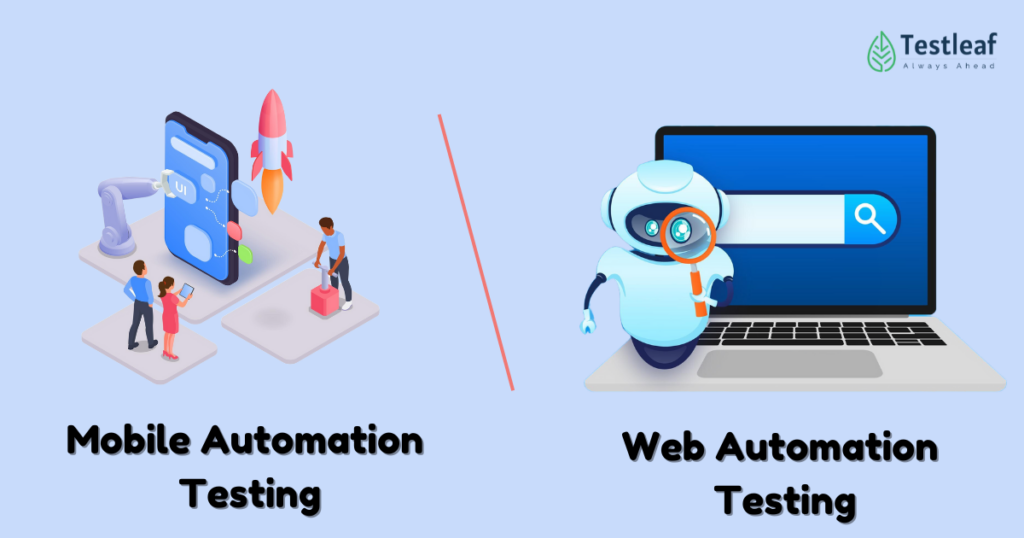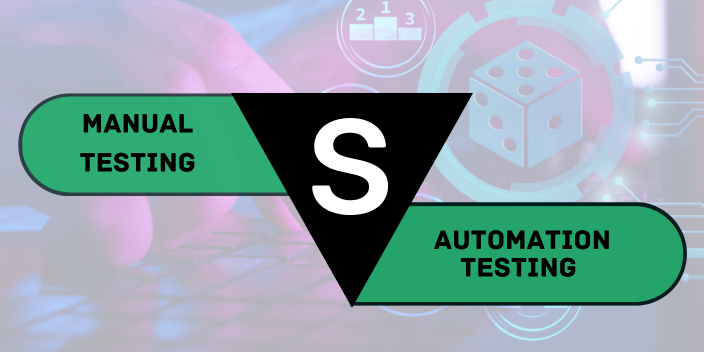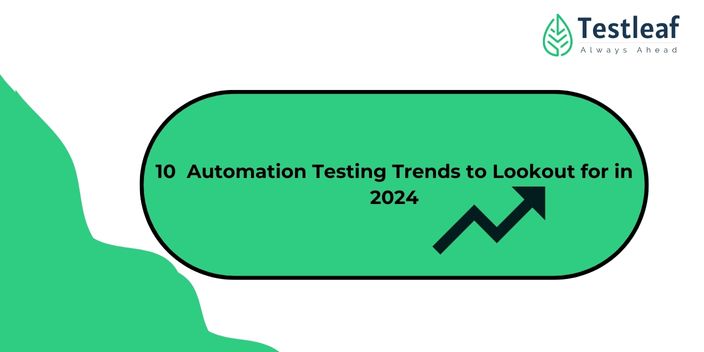Starting a career in Automation testing? You’ve probably heard about both mobile testing and desktop automation testing. But which one is better for you? With mobile apps taking over our daily lives, mobile testing is becoming a hot skill for testers. Unlike traditional desktop automation, mobile testing requires understanding different devices, networks, and real-world user behavior. But does that make it the better choice? In this blog, we’ll break it down in simple terms and help you decide which path suits your career goals best.
What is Mobile Automation Testing?
Mobile automation testing is the process of testing mobile applications (Android & iOS) using automation frameworks like Appium, Espresso, or XCUITest to ensure functionality, usability, and performance.
What is Desktop Automation Testing?
Desktop automation testing focuses on automating software applications for desktop environments using tools like Selenium, WinAppDriver, and TestComplete.
Mobile Testing Vs Desktop Automation Testing
| Feature | Mobile Automation Testing | Desktop Automation Testing |
| Devices | Smartphones, Tablets | Laptops, PCs |
| Operating Systems | Android, iOS | Windows, macOS, Linux |
| Test Complexity | Higher (UI variations, gestures, network conditions) | Lower (Limited device variability) |
| Automation Tools | Appium, Espresso, XCUITest | Selenium, WinAppDriver, TestComplete |
| Execution Speed | Slower due to real device testing | Faster due to stable environments |
| Market Demand | Increasing (mobile-first era) | Stable demand |
| Job Opportunities | Growing rapidly | Steady growth |
Top 7 Reasons Why Mobile Testing is Gaining Popular
- Mobile Apps Dominate the Market: 70%+ of online traffic comes from mobile devices.
- Higher User Expectations: Apps must work flawlessly across different devices & network conditions.
- Frequent Updates: Mobile apps receive more frequent updates, requiring continuous testing.
- Device Fragmentation: Android & iOS updates create testing challenges that demand automation.
- Growing Career Opportunities: Companies now prioritize hiring mobile automation testers over desktop testers.
- Cloud-Based Testing is Rising: Mobile testing tools like BrowserStack & SauceLabs make remote device testing easier.
- Integration with DevOps & CI/CD Pipelines: Mobile automation is crucial in agile testing environments.
How to Start Learning Mobile Automation
Ready to switch? Follow this roadmap:
Step 1 – Master a Mobile Automation Tool
Appium (Cross-platform, best for beginners) , Espresso (Android), XCUITest (iOS) for platform-specific automation.
Step 2 – Learn Programming Basics
Java or Python (Most tools use these languages).
Step 3 – Get Hands-on with Real Devices
Use BrowserStack, Sauce Labs, or local device labs.
Step 4 – Build a Mobile Testing Portfolio
Automate test cases and upload projects on GitHub to showcase your skills.
Step 5 – Apply for Jobs & Certifications
Get certified in Appium, ISTQB Mobile Testing, or Automation Testing.
Explore Similar Topics: Ultimate Guide to Finding Jobs for Software Testing Freshers
Choose Desktop Automation If…
- You work on enterprise web apps or software testing.
- Your company primarily focuses on web-based applications.
- You prefer stable, low-maintenance automation frameworks.
Choose Mobile Automation If…
- You want higher salaries & global opportunities.
- Your company is shifting to mobile-first applications.
- You enjoy working with cutting-edge automation tools.
Ready to Learn Mobile Automation Testing?
Learn Mobile Automation Testing with Testleaf’s Appium Testing Course Online Whether you’re a beginner or an experienced tester looking to upskill, our expert-led courses in Appium will help you land high-paying jobs in Chennai’s top IT firms.
Why Join Testleaf?
- Live project-based training
- Hands-on experience with real-world test cases
- 100% placement assistance
We also provide course in
- Selenium ( anchor text)
- Devops ( anchor text)
- Performance Testing ( anchor text)
Explore our more course here : give all page course link
Conclusion
Mobile automation testing is a game-changer in the evolving software landscape. With businesses shifting towards mobile-first strategies, the demand for skilled mobile testers is on the rise. While desktop automation offers stability and lower complexity, mobile automation presents greater career growth, higher salaries, and future-proof opportunities. Whether you’re looking to advance your career or stay ahead of the curve, mastering mobile automation tools like Appium, Espresso, and XCUITest is a wise investment. Start learning today and secure your place in the future of software testing
FAQs:
1. Can I switch from desktop automation to mobile automation easily?
Yes! If you already know Selenium WebDriver, learning Appium is straightforward since it uses the same WebDriver protocol.
2. Is mobile testing harder than desktop automation?
Mobile testing is more complex due to device fragmentation & network issues, but tools like Appium & cloud testing services make it manageable.
3. Which tool is best for mobile automation testing?
Appium is best for cross-platform testing, Espresso for Android, and XCUITest for iOS.
4. What is the salary difference between mobile and desktop automation testers?
In Chennai, mobile automation testers earn 10-20% higher salaries due to higher demand.
5. Should I specialize in mobile or desktop automation?
Future-proof your career by learning mobile automation alongside desktop automation.
We Also Provide Training In:
- Advanced Selenium Training
- Playwright Training
- Gen AI Training
- AWS Training
- REST API Training
- Full Stack Training
- Appium Training
- DevOps Training
- JMeter Performance Training
Author’s Bio:

As CEO of TestLeaf, I’m dedicated to transforming software testing by empowering individuals with real-world skills and advanced technology. With 24+ years in software engineering, I lead our mission to shape local talent into global software professionals. Join us in redefining the future of test engineering and making a lasting impact in the tech world.
Babu Manickam
CEO – Testleaf







